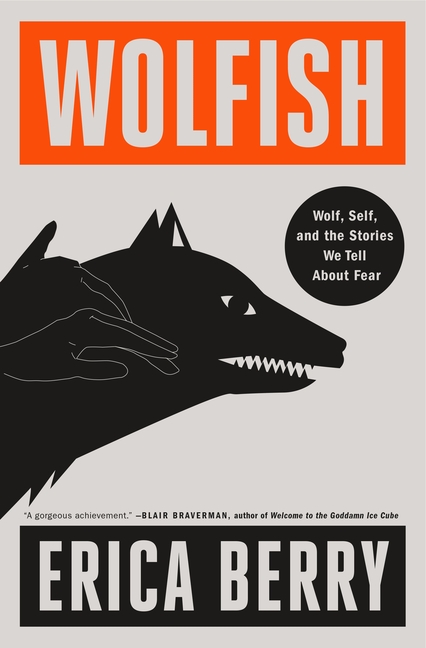Wolfish moves back and forth between these and other narratives like a wolf weaving through trees at night—assembling a story that’s ultimately about what we fear and why ... Tracing a wolf’s path through the Pacific Northwest invites a misplaced desire to make a story out of it, but while Berry is growing, OR-7 is simply moving ... As such, charting the wolf does not bring one closer to the animal. But what it does do for Berry is reveal the layers and webs of interconnectedness that we and the wolves share ... She distrusts her own fear, and she also distrusts this distrust. Wolfish maps out the ways in which patriarchy is in the business of gaslighting women, who are taught both not to feel safe and simultaneously to doubt that feeling ... The prose itself in Wolfish is brisk and essayistic, and makes for a compelling read. But among the many things Berry is afraid of, at times she is also afraid of her own voice. Throughout the book, Berry cites other essayists and poets (Cathy Park Hong, Elisa Washuta, and Carmen Maria Machado among them): Many of these quotations appear mainly as single sentences, without much elaboration or exposition, and seem designed mainly to shore up Berry’s own writing, as though she doesn’t quite have the confidence to bring her own lyrical flair to the page and needs to borrow. Often, these quotes feel as though they’ve been put here out of Berry’s fear that, as a white woman, she needs to demonstrate her awareness of and debt to writers of color. But this backfires ... It seems curious that Berry repeatedly quotes books explicitly about Blackness ... But this is how fear works—it throws up any barricade it can think of, any defense against the beast at the door. In the process, it shapes the world in its own image. As a book written not just about fear but written in fear, Wolfish is a fascinating document illuminating how white women’s fear is used to make and unmake the world.
Read Full Review >>

